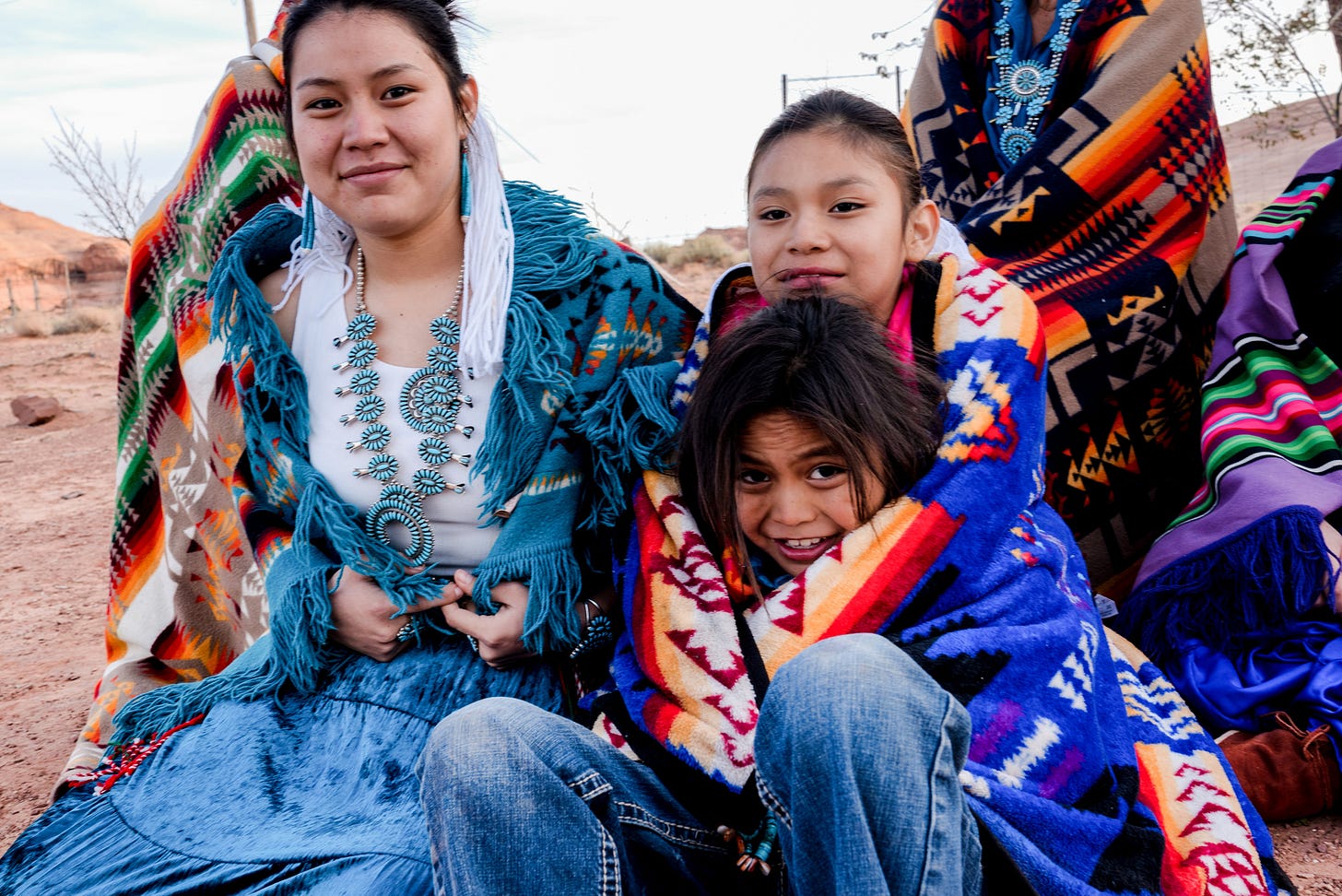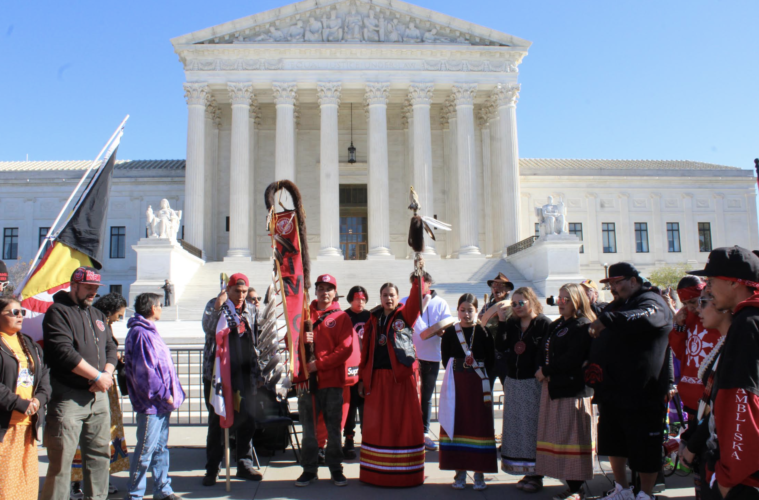
The Enduring Shield: ICWA and the Battle to Protect Native American Children and Tribal Futures
In the annals of American law, few statutes carry the weight of history, cultural preservation, and ongoing legal contestation quite like the Indian Child Welfare Act of 1978 (ICWA). Enacted to address a crisis of catastrophic proportions – the systemic removal of Native American children from their families and tribes by state child welfare agencies and private adoption entities – ICWA stands as a landmark piece of legislation. It is not merely an adoption law; it is a foundational pillar of tribal sovereignty, a testament to the federal government’s trust responsibility, and a critical safeguard against cultural extinction. The journey of ICWA, from its urgent inception to its recent, high-stakes defense before the Supreme Court, underscores its enduring significance in protecting the future of tribal nations.
Before ICWA, the landscape of Native American child welfare was bleak, marked by policies and practices that amounted to cultural genocide. For centuries, various governmental and religious institutions sought to "civilize" Indigenous peoples, often through the forced assimilation of their children. The infamous boarding school era, spanning from the late 19th to the mid-20th century, saw hundreds of thousands of Native children forcibly removed from their homes, prohibited from speaking their languages, practicing their spiritual beliefs, or maintaining their cultural identities. The stated goal, chillingly articulated by Captain Richard Henry Pratt, founder of the Carlisle Indian Industrial School, was to "Kill the Indian in him, and save the man."
While the boarding school era formally waned, its legacy of family separation continued in a more insidious form through state child welfare systems. By the 1960s and 70s, an alarming number of Native American children were being removed from their homes and placed into non-Native foster or adoptive families. Congressional investigations and a study by the Association on American Indian Affairs (AAIA) revealed that between 25% and 35% of all Native children were separated from their families. In some states, the rate was as high as 75%. These removals often occurred without due process, based on cultural misunderstandings, and with little regard for the children’s tribal connections or the long-term impact on their identity and well-being. As a 1974 Senate report observed, "The wholesale separation of Indian children from their families is perhaps the most tragic and destructive aspect of American Indian life today." This systematic dismantling of Native families and communities threatened the very survival of tribal cultures.
It was against this backdrop of cultural devastation that ICWA was born. Passed by Congress and signed into law by President Jimmy Carter in 1978, ICWA’s primary purpose is "to protect the best interests of Indian children and to promote the stability and security of Indian tribes and families." It recognizes that the "best interests of the child" for Native children inherently include maintaining their connection to their tribal culture, community, and heritage. The law established minimum federal standards for the removal of Indian children from their families and set out a series of provisions designed to prevent unnecessary separation and to prioritize culturally appropriate placements when removal is unavoidable.
Key Provisions of ICWA:

-
Jurisdiction: ICWA grants tribal courts exclusive jurisdiction over child custody proceedings involving Indian children residing or domiciled on a reservation. For off-reservation Indian children, tribal courts have concurrent jurisdiction with state courts, allowing for transfer of cases to tribal court unless good cause exists not to, or if either parent objects. This provision acknowledges tribal sovereignty and the inherent right of tribes to govern their own people.
-
Active Efforts: Before an Indian child can be removed from their home, state agencies must make "active efforts" to provide remedial services and rehabilitative programs designed to prevent the breakup of the Indian family. This goes beyond the "reasonable efforts" typically required in state child welfare cases, emphasizing culturally appropriate services that address the specific needs of Native families.
-
Placement Preferences: When an Indian child must be removed from their home, ICWA establishes a hierarchy of placement preferences:

- A member of the child’s extended family.
- A foster or adoptive family licensed or approved by the child’s tribe.
- An Indian foster or adoptive family licensed or approved by another tribe.
- An institution for children approved by an Indian tribe or operated by an Indian organization which has a program suitable to meet the child’s needs.
This preference system is designed to keep Native children connected to their cultural identity and community, recognizing that their well-being is deeply intertwined with their heritage.
-
Qualified Expert Witness: In involuntary termination of parental rights proceedings, ICWA requires the testimony of a "qualified expert witness" who can attest that continued custody by the parent or Indian custodian is likely to result in serious emotional or physical damage to the child. This expert must have specific knowledge of tribal culture and child-rearing practices, ensuring that decisions are not based on cultural biases.
-
Notice: The child’s tribe must be notified of any child custody proceeding involving an Indian child, allowing the tribe to intervene and participate in decisions affecting its future members. This ensures that tribes can advocate for the child’s best interests and their own sovereign rights.
ICWA has had a profound impact on Native American families and tribes. It has empowered tribal governments to reclaim jurisdiction over their children, strengthened family bonds, and provided a legal framework for cultural preservation. By prioritizing placements within Native communities, ICWA helps ensure that children grow up understanding their heritage, language, and traditions, fostering a stronger sense of identity and belonging. For many Native people, ICWA is not just a law; it is a lifeline that has allowed generations to remain connected to their roots, preventing the replication of the trauma experienced by their ancestors.
Despite its critical role and demonstrated success, ICWA has faced persistent legal challenges, particularly in recent decades. Opponents have frequently argued that the law is "race-based" and therefore violates the Equal Protection Clause of the Fourteenth Amendment, or that it infringes upon state sovereignty. These arguments fundamentally misunderstand the unique political status of Native American tribes. Tribal citizenship is not a racial classification; it is a political one, akin to citizenship in any sovereign nation. The federal government’s relationship with tribes is rooted in treaties, federal statutes, and a long history of government-to-government relations, not race.
One of the most significant Supreme Court cases affirming ICWA’s principles was Mississippi Band of Choctaw Indians v. Holyfield (1989). In this case, the Court held that a tribal court, not a state court, had exclusive jurisdiction over the adoption of twin children whose parents were enrolled tribal members, even though the children were born off the reservation and the parents had sought to terminate their rights in state court. The Court emphasized that the children’s "domicile" was with their mother on the reservation, reinforcing the principle that tribal jurisdiction follows the child’s tribal affiliation.
More recently, ICWA faced its most existential threat in Haaland v. Brackeen, a case that consolidated several lawsuits challenging the law’s constitutionality. The plaintiffs, a non-Native couple seeking to adopt a Native child, along with several states, argued that ICWA’s placement preferences were unconstitutional, that Congress had overstepped its authority, and that the law "commandeered" state agencies. This case garnered immense attention, with tribes, child welfare organizations, and legal scholars rallying in support of ICWA, filing numerous amicus briefs. They underscored the historical context of ICWA, its basis in the federal government’s plenary power over Indian affairs, and its vital role in preventing the ongoing dissolution of tribal families.
On June 15, 2023, the Supreme Court delivered a resounding victory for ICWA, upholding its constitutionality in a 7-2 decision. The Court rejected all constitutional challenges, affirming Congress’s authority to legislate with respect to Indian affairs. Justice Amy Coney Barrett, writing for the majority, emphasized that "the Constitution gives Congress the power to legislate with respect to Indian tribes." The decision reinforced the understanding that ICWA’s provisions are based on the political relationship between tribes and the federal government, not on race. While the ruling was a monumental victory, it also served as a stark reminder of the continuous vigilance required to protect tribal sovereignty and the well-being of Native children.
The challenges to ICWA are not merely legal skirmishes; they are battles over identity, self-determination, and the very existence of Indigenous cultures. For Native children, connection to their heritage is not a preference but a fundamental component of their holistic health and well-being. Studies have shown that Native children who grow up connected to their culture have better mental health outcomes, higher self-esteem, and a stronger sense of identity. Disconnection, conversely, can lead to identity confusion, trauma, and increased vulnerability to social and health disparities.
The Indian Child Welfare Act is more than just a piece of legislation; it is a living document that embodies the struggle for justice, the resilience of Indigenous peoples, and the ongoing commitment to repair historical wrongs. It stands as a testament to the principle that children thrive when connected to their cultural roots and that tribal nations have the inherent right to raise their own children according to their own traditions. As the legal landscape continues to evolve, the spirit and letter of ICWA remain an indispensable shield, protecting Native American children, strengthening tribal families, and safeguarding the future of Indigenous nations across the United States. Its enduring legacy is a beacon of hope, reminding us that the path to true justice and reconciliation requires a deep respect for sovereignty, culture, and the fundamental right of all peoples to raise their children within the embrace of their heritage.


